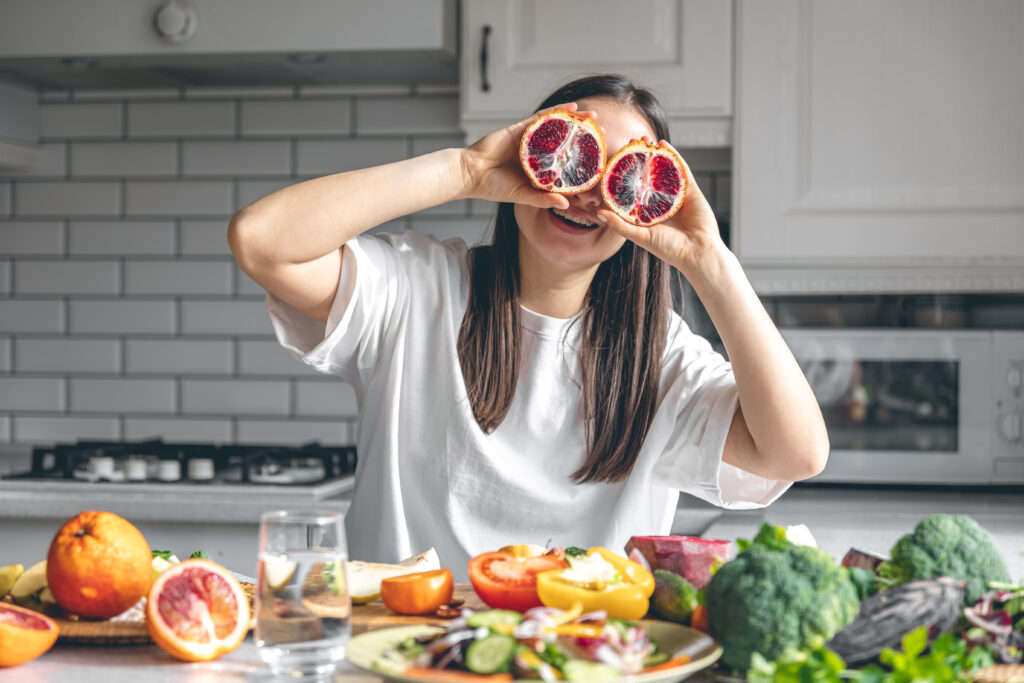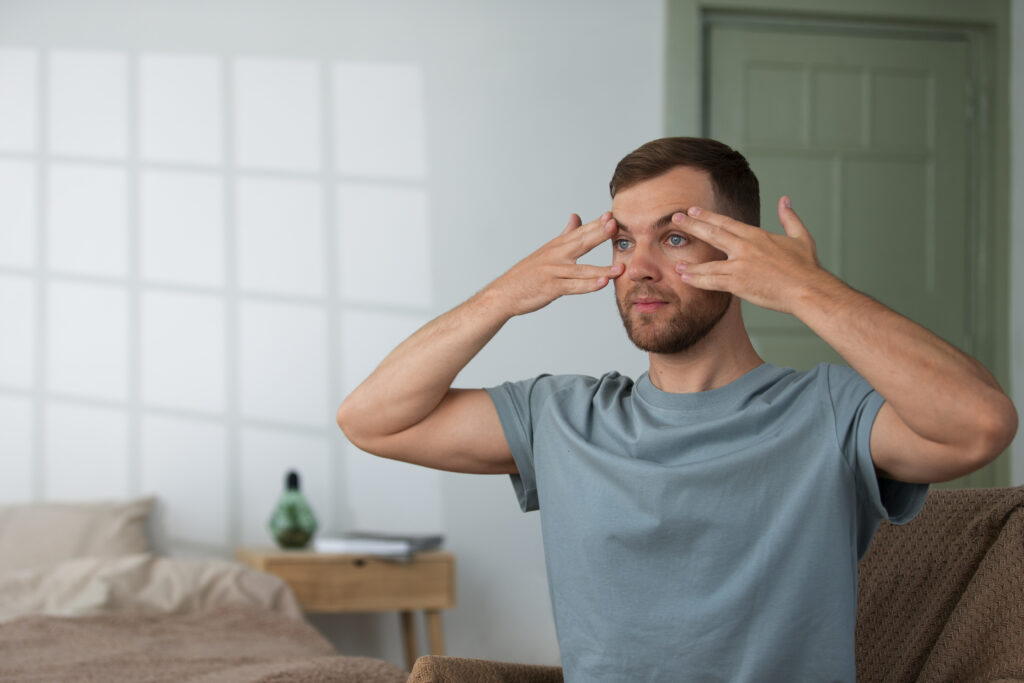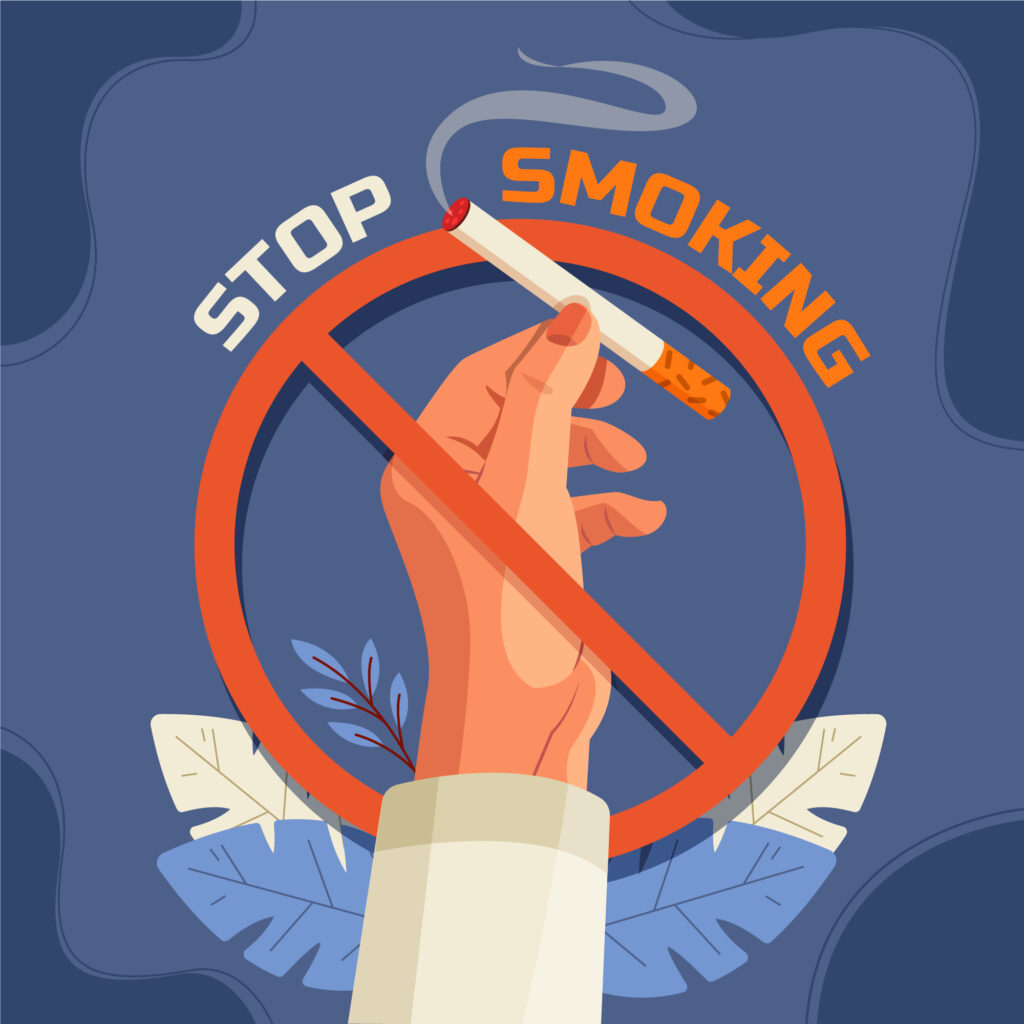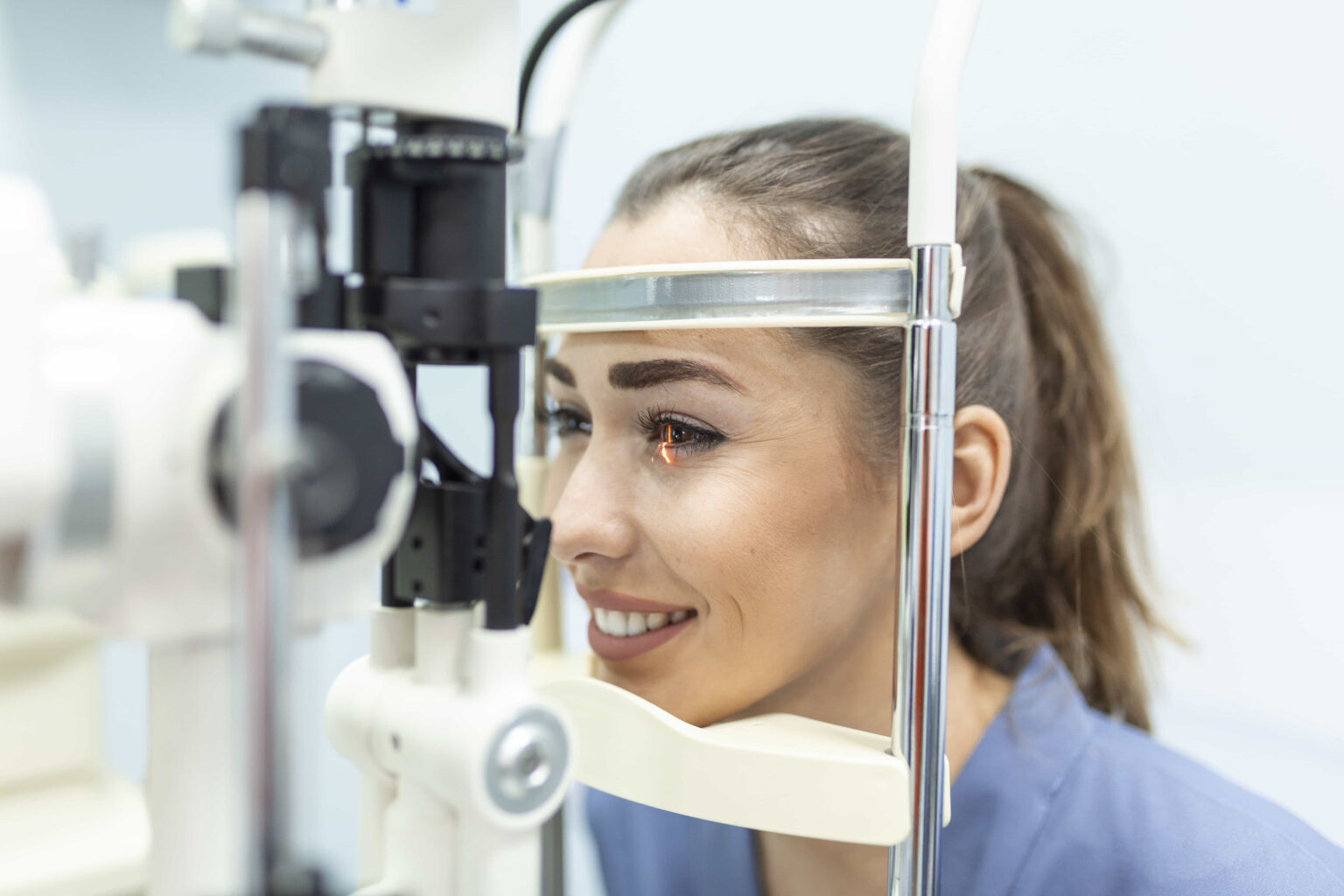Your eyes work hard every day, from endless screen time to adjusting in different lighting conditions. Over time, you may notice changes like difficulty focusing, eye strain, or sensitivity to light. The good news? A few simple habits can go a long way in protecting your vision and keeping your eyes healthy for years to come.
At Eyemastr, we believe prevention is better than cure. Here’s a practical daily eye care routine you can follow.

1. Eat for Your Eyes
Nutrition plays a big role in vision health. The right nutrients help lower the risk of age-related issues like cataracts and macular degeneration. Add these foods to your plate:
• Leafy Greens: Spinach, kale, romaine (rich in antioxidants)
• Cruciferous Veggies: Broccoli, Brussels sprouts (vitamin-packed)
• Fatty Fish: Salmon, sardines (omega-3s for retinal health)
• Bright Veggies: Carrots, red peppers (vitamin A)
• Proteins: Eggs, nuts, beans (essential building blocks)
• Citrus Fruits: Oranges, kiwis (vitamin C boost)
• Zinc Sources: Chickpeas, yogurt (supports retinal function)

2. Shield Your Eyes from the Sun
UV rays don’t just damage your skin, they also harm your eyes. Overexposure increases the risk of cataracts and macular degeneration.
• Wear sunglasses that block 99–100% UVA and UVB rays, even on cloudy days
• Opt for wrap-around frames for extra coverage
• Pair with a wide-brimmed hat for complete protection

3. Manage Screen Time Smartly
Digital devices strain your eyes. Symptoms like dryness, headaches, and blurry vision are common. To reduce strain:
• Follow the 20-20-20 rule: Every 20 minutes, look at something 20 feet away for 20 seconds
• Keep your screen about 20 inches from your eyes
• Use blue-light-blocking lenses or reduce screen brightness

4. Practice Clean Habits
Eye hygiene is often overlooked but crucial.
• Wash hands before touching your eyes or handling lenses
• Remove makeup before bed to avoid infections
• Replace eye makeup every 3 months
• Choose gentle, hypoallergenic skincare for the eye area

5. Exercise Your Eyes
Just like the body, your eyes benefit from regular exercise. Try:
• Palming: Rest warm palms over your eyes for relaxation
• Focus Shifts: Alternate between near and far objects
• Eye Rotations: Gently move eyes in circles to improve flexibility

6. Stay Smoke-Free
Smoking raises the risk of cataracts, macular degeneration, and optic nerve damage. Quitting is tough but worth it. Swap cravings with healthy distractions like walking, listening to music, or deep breathing.

7. Prevent Dry Eyes
If your eyes feel gritty or dry:
• Use lubricating drops or artificial tears
• Blink often, especially while on screens
• Stay hydrated throughout the day

8. Wear Protective Eyewear
Whether it’s sports, DIY projects, or working with chemicals, safety goggles prevent accidents. For outdoor use, UV-blocking sunglasses double as style and protection.

9. Sleep Well
Rest is recovery. Aim for 7 to 9 hours of sleep to keep eyes refreshed, reduce puffiness, and prevent strain. For under-eye care, add a hydrating serum or cream to your night routine.

10. Schedule Eye Exams
Even if your vision feels fine, yearly checkups detect problems early. An eye doctor can test for:
• Glaucoma
• Cataracts
• Macular degeneration
• Prescription updates
Early detection is key to long-term eye health.
ALSO SEE: AI-Powered Eye Exams for Smarter Vision
Caring for your eyes doesn’t need to be complicated. By eating well, protecting against UV rays, limiting screen time, and scheduling regular checkups, you’ll safeguard not only your vision but your overall health.
At Eyemastr, we’re here to make daily eye care easier, from protective sunglasses to expert insights. Start building your eye care routine today and give your eyes the attention they deserve.
Frequently Asked Questions
1. How can I naturally improve my eye health?
Eat a nutrient-rich diet, wear sunglasses outdoors, avoid smoking, and take regular screen breaks.
2. Is cold water good for eyes?
Yes. Cold compresses can reduce swelling, irritation, and dryness.
3. Can I use hot water for eyes?
No. Hot water can cause serious injury. Use a warm compress instead for conditions like blepharitis.
4. What foods should I avoid for eye health?
Limit high glycaemic foods like white bread, sugary cereals, and fried snacks. Choose whole grains, fruits, and vegetables instead.
5. Which vitamins support healthy eyes?
Vitamin A: Prevents dryness
Vitamin C and E: Protect against oxidative damage
Zinc and Copper: Support retinal function
Lutein and Zeaxanthin: Reduce age-related eye risks


